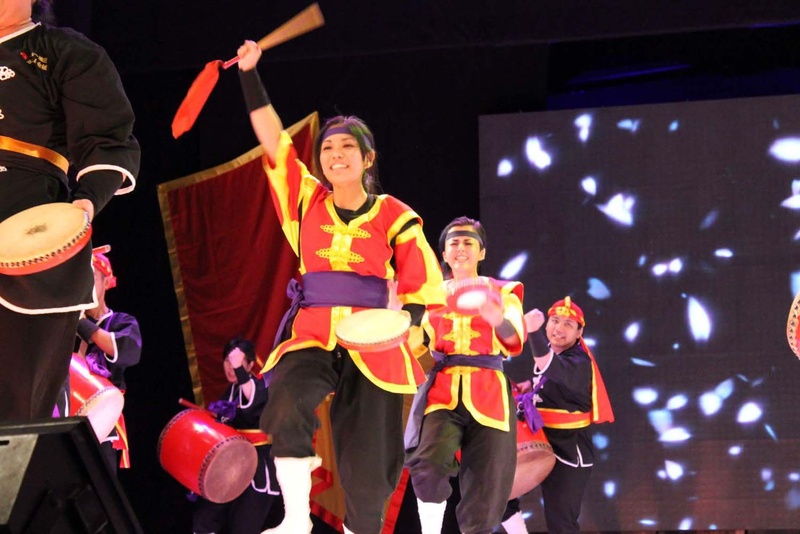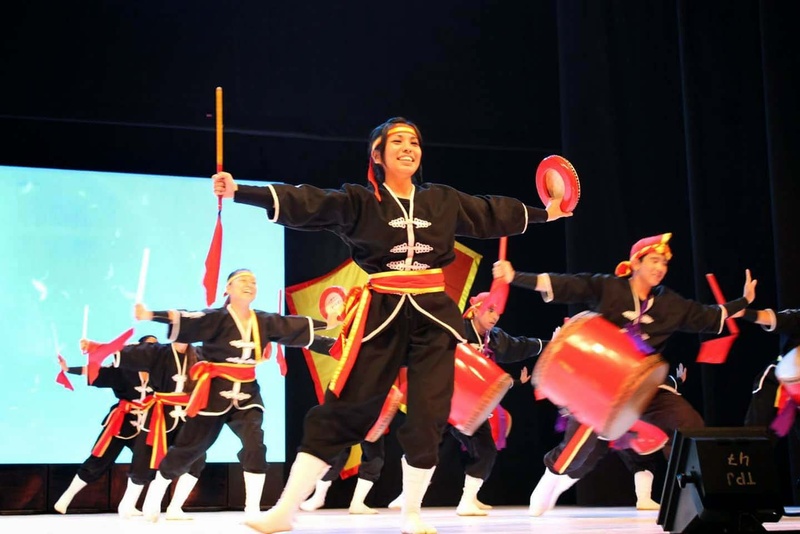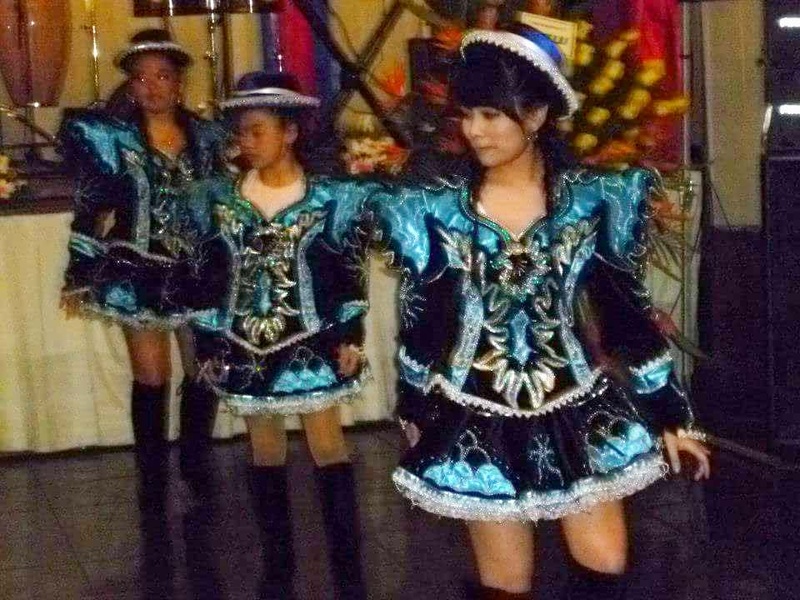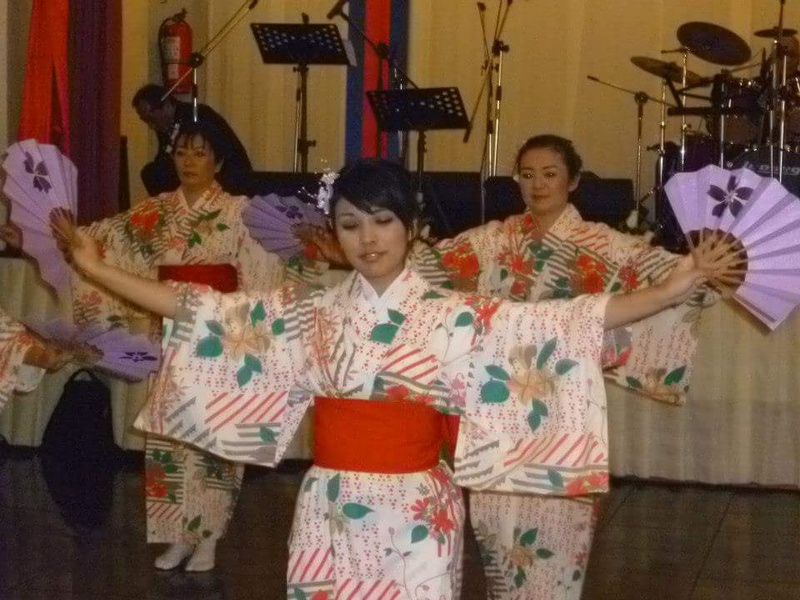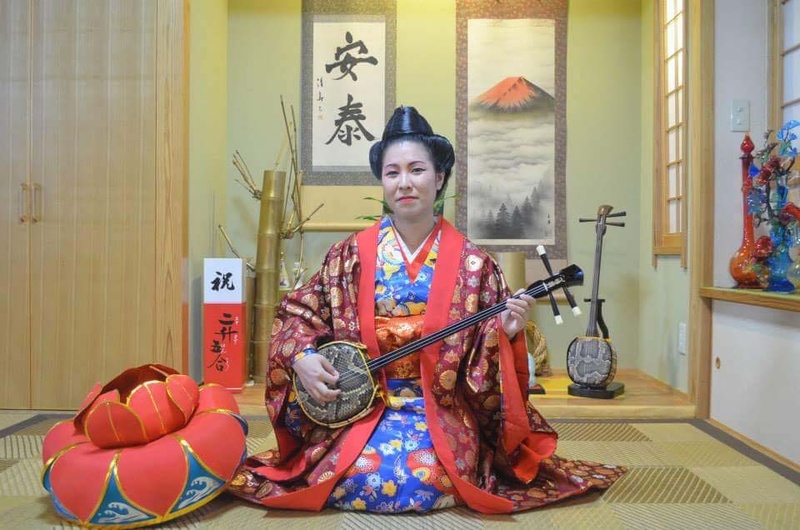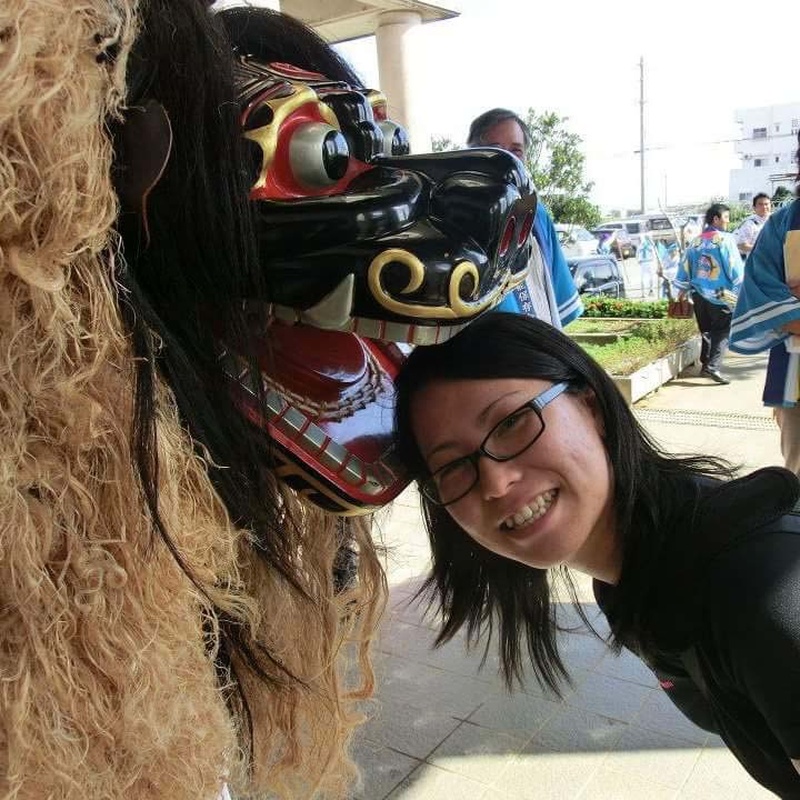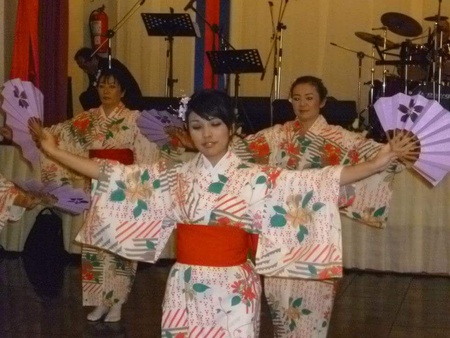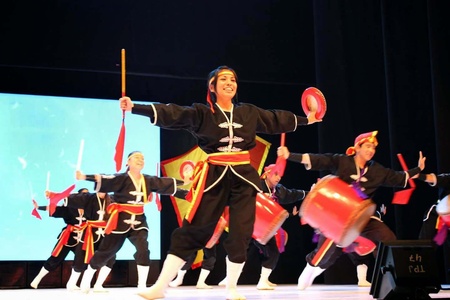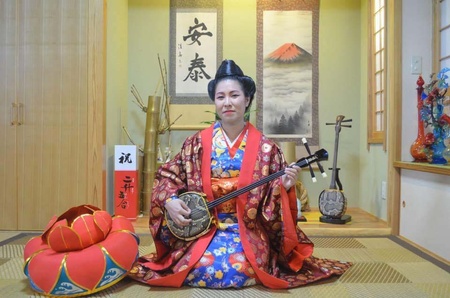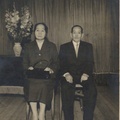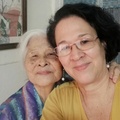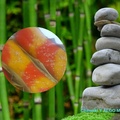It is difficult for me to tell this, I do not know if this scene was repeated in all Okinawan homes, my father spoke Nihongo and also Uchinaguchi (Okinawa dialect), my mother only understood something, she could not study when she was left without a mother at a very young age and without dad years later. For her, studying was a luxury, plus she had younger brothers. At home we listened to my father speak Uchinaguchi with my obá or with my aunts, we only knew a few words; But, when using them, my mother told us that we should not say them in other places or that we should be careful with who we used them with.
As a child I didn't understand it, as I grew older I understood that we came from Okinawa and there were others who came from the big island, so to speak, that Uchinaguchi was only spoken in Okinawa and that there were people who made fun of that way of speaking and that they even referred to them as provincials and them from the city. But, I also realized that what my mother wanted to protect us from, happened to only a few, like in everything there were all kinds of people, because I met people who treated me the same, I never had problems, but I did hear stories of discrimination.
It seems that I was unconsciously blocking everything that was my origins, and when I was with other Nikkei , not knowing where they came from, I was always careful in saying things. Within the family he followed all the customs, traditions. At home, my dad was a fan of Enka music, I remember that at first very few had these video players and some uncles of ours had brought him from Japan with a collection of Okinawan videos with music, dances and many programs that included those of naichi .
Sometimes my dad was a guest, so much so that he stayed up very late and kept the owners of the house up late. Over time they started selling this equipment here, so my dad bought it too. I remember that I had a collection of tapes in the beta system, which over time began to deteriorate and you only saw stripes; But my dad still used them, buying some or exchanging them with a family member. It was strange for me to see my dad, who was a very serious person, apparently very hard, upright, severe; But, when listening to an Enka song, he would be moved to tears or smile at some occurrence in those programs. Many told me that they were afraid of my dad because of his seriousness. But, when they got to know him, they realized that he was not very serious, he was a little quiet, but he could laugh until he burst out laughing at other people's ideas, he liked to listen, but he had few words.
My father, because he liked enka music, sometimes attended the Koohaku Uta Gassen with my mother, a version that was held in Lima with the Nikkei singers well known to us: Yochan Azama (who is a businessman and participates as a guest in any Nikkei activity ), Beto Shiroma (resides in Okinawa, developing his career as a singer), Augusto Tamashiro (died very recently in Japan), Charo Unten (performed at Oishii Perú 2017, held in Tokyo), José Onaga (currently has a group of Taiko in Lima), Lucy Nagamine (very well known in Okinawa) and many more artists.
When I got married I went to live at my in-laws' house, they are from the farm, from the former Hacienda San Agustín, in Callao. They had a more Okinawan culture, my father-in-law played sanshin which is a three-stringed Okinawan musical instrument (until he suffered a stroke). They tell me that before, with several neighbors and relatives, they got together to sing and play instruments. Women danced “ kachashi ” (Okinawan dance to music performed by sanshin and taiko ) on special occasions.
Life there was very special, although it is true that each house was far from the other because everything was farmland, the neighbors treated each other like family. There was a lot of unity and camaraderie, there was a Nikkei majority. Before, there was such cooperation that they helped each other when harvesting, sowing or when pigs were killed. That was integration, that's why there were many celebrations, where everyone got together and showed off everyone's artistic vein. “Family Day” was celebrated, where Peruvian and Japanese folklore was combined, Nikkei singers, known by the community, even came. Our life went like this.
But, apparently, my daughter also blocked everything “ Nikkei ” because she studied at a school where there were no Japanese descendants, she didn't even like Japanese food. He perhaps unconsciously rejected what I had transmitted to him, showing no interest in it.
Once, some neighbors told us that it would be good for her to interact with other Nikkei and that there was a call from Ryukyukoku Matsuri Daiko - Peru branch to learn “Eisa”, which is a folk dance, and to play “Taiko”. I wondered what that was? They explained to me that Taiko was a kind of drum and that it was played and danced. She was originally from Okinawan, so my daughter signed up with two other neighbors, who had encouraged her; But, I think that not very convinced of this, she began to attend.
He was 16 years old, he started as a beginner, but; Little by little he fell in love with that dance. He began to be interested in the language, music, even food. Then everything felt delicious, she integrated so much into the group that she also began to improve every day: She gave presentations with the group and that excited her and she tried to practice more. It was something he liked, he made an effort. Many times I had to pick her up from her rehearsals, which were until very late at night at the AELU club. That's why I also denied it, but I only said: “everything for the children.” I came to understand it when I saw my daughter at a presentation for the first time.
It was a tremendous drum and she is skinny, I don't know how she managed to carry it, move, play, carry and dance all at the same time, and with an angelic smile at all times. She looked very beautiful, she radiated energy, sweetness, grace. The boys, when they get to know each other, are interested in what they sing and dance, in the origins, in the history, in the sadness of the war and the role of Okinawa. She made me understand that I had also been denying myself for a long time. time.
But, I was very interested in the customs, my roots, I was completely determined to continue with the family " butsudan ", I liked the food, the "sata andagui" that remind me of my mother. When I was young, while my parents liked the artists Yashiro Aki, Ituski Hiroshi, Hosokawa Takashi, my Matsuda Seiko, Tahara Toshihiko, Machi, Naoko.
Hora draws my attention that in the new generation we have, the kids care a lot about their roots, like my daughter who cultivates the eisa , my niece Andrea Sayuri also plays the sanshin , I see kids interested in the study scholarships in Okinawa. Although some only think they are going for a walk, they return with a different mentality, they say that Okinawa is magical and changes them, they come loving the culture, the music, the dances, and its people.
For this reason, I am now trying to remember all the things I experienced with my parents, uncles, grandparents; It's a shame they are no longer there. Recently, a friend told me that he admired my love for everything Nikkei and Okinawan. The truth is that my face fell with shame, glad that we were in the chat. I have been denying everything for so long, that's why I am now searching everywhere, listening to everyone who has something to share, a “ yuta ” (spiritualist or medium) once told me that I was in a desperate search for something, I search but I can't find it, even I didn't know what I was looking for. Now I understand it and that is why they have me writing all my experiences and memories, to recognize all the people who filled my life, revalue everything and rediscover my roots.
© 2017 Roberto Oshiro Teruya


